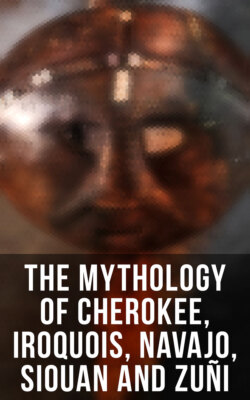Читать книгу The Mythology of Cherokee, Iroquois, Navajo, Siouan and Zuñi - James Mooney - Страница 97
На сайте Литреса книга снята с продажи.
Idea of a Future Life
ОглавлениеThe idea of a future life was very widely disseminated among the tribes of North America. The general conception of such an existence was that it was merely a shadowy extension of terrestrial life, in which the same round of hunting and kindred pursuits was engaged in. The Indian idea of eternal bliss seems to have been an existence in the Land of the Sun, to which, however, only those famed in war were usually admitted.
That the Indians possessed a firm belief in a future state of existence is proved by their statements to the early Moravian missionaries, to whom they said: "We Indians shall not for ever die. Even the grains of corn we put under the earth grow up and become living things." The old missionary adds: "They conceive that when the soul has been awhile with God it can, if it chooses, return to earth and be born again." This idea of rebirth, however, appears to have meant that the soul would return to the bones, that these would clothe themselves with flesh, and that the man would rejoin his tribe. By what process of reasoning they arrived at such a conclusion it would be difficult to ascertain, but the almost universal practice which obtained among the Indians both of North and South America of preserving the bones of the deceased plainly indicates that they possessed some strong religious reason for this belief. Many tribes which dwelt east of the Mississippi once in every decade collected the bones of those who had died within that period, carefully cleaned them, and placed them in a tomb lined with beautiful flowers, over which they erected a mound of wood, stone, or earth. Nor, indeed, were the ancient Egyptians more considerate of the remains of their fathers.
